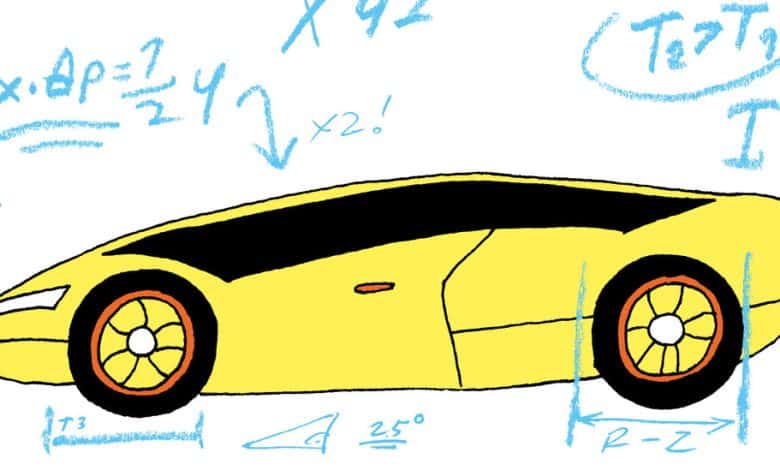The Cars of the Future Are Boring

We’re at an inflection point in electric-car optimism. Over the past few years, as electric vehicle sales increased substantially and car companies announced an onslaught of new battery-powered models, it seemed that electric cars were a near-term inevitability. But for all the heady promise, E.V. enthusiasm seems to be cooling.
Ford recently announced that it’s cutting production targets for the Lightning, its electric truck. Brag-and-bluster Tesla projected that sales growth in 2024 would be “notably lower” than in recent years. Hertz is selling off about a third of its electric cars and Audi is slowing its transition to E.V.s. There are plenty of obvious headwinds for E.V.s — cost, range, and charging infrastructure (or lack thereof). But there’s also a more subtle issue at play, one that won’t be easily resolved: Electric cars are too boring.
I know this seems like a preposterous complaint, and I agree. On the list of things wrong with the world, “electric cars are dull” isn’t in the Top 5. I revel in being able to charge my plug-in hybrid Chrysler Pacifica with my solar panels, and believe that E.V.s are the answer to humanity’s long-term transportation needs. However, I also believe that the anesthetic experience of driving an electric car is a real hurdle to the technology’s widespread adoption, given that nearly every potential E.V. buyer grew up with the rich sensory experience of internal combustion.
Driving, as we all knew it before the arrival of mass-market electric cars a little more than a decade ago, involved familiar rituals that carved out a place in our collective psyche. You’d turn a key or push a button, feel a rumble of vibration through the seat and steering wheel, put a transmission in gear and listen to the revs rise and fall with upshifts and downshifts. Maybe you learned to drive with a manual transmission, with your feet dancing between clutch and accelerator as you chose your gears, herky-jerky at first but eventually tilling a furrow into muscle memory. There might be smells, oil and gas or diesel, not pleasant but not entirely unpleasant, either.
For people who love cars, and even those who don’t, this flood of visceral sensory feedback becomes associated with freedom and road trips, first dates and dashes to the grocery store.
Electric cars make a clean break from all of that. Climb into an electric car, and there’s often no key to turn or start button to push — it’s just on. There’s little noise except for the legally required pedestrian warning tone, which often sounds like Trent Reznor composing a creepy-synth Nine Inch Nails tune somewhere behind the front bumper. Some of them have a “one pedal” mode that doesn’t even require touching the brake pedal most of the time. It’s like driving a sensory deprivation chamber. For passengers, it’s luxurious. For drivers, it’s dull.
